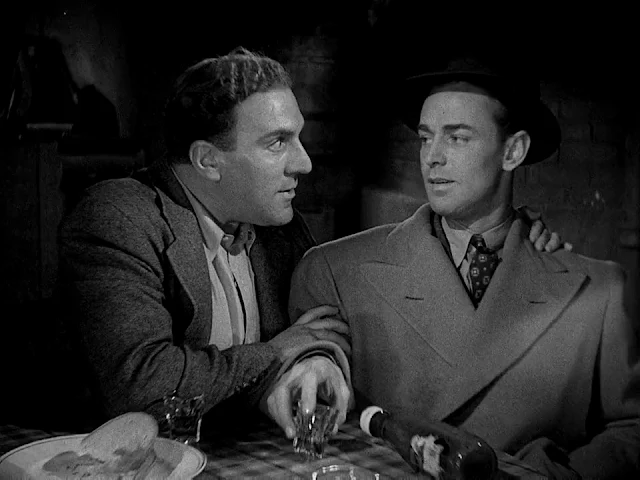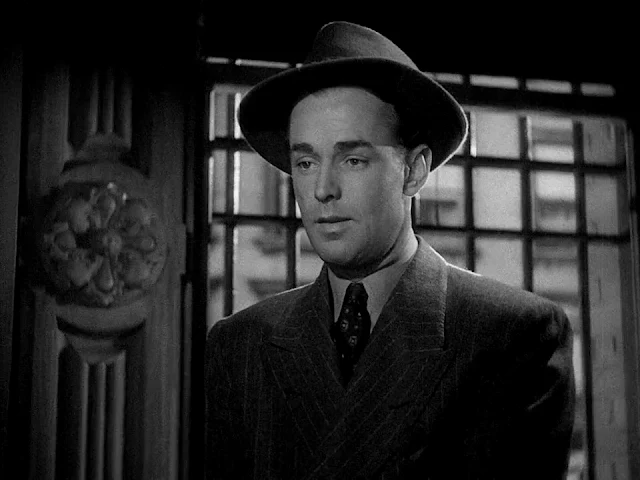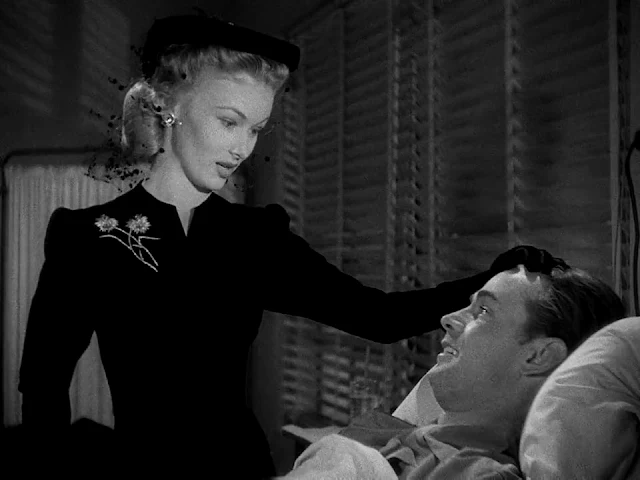 |
| Lizabeth Scott, Barbara Stanwyck, and Van Heflin in The Strange Love of Martha Ivers |
The Strange Love of Martha Ivers doubles up on Lorenz Hart's line about "the double-crossing of a pair of heels" to give us a quartet of duplicity. There are no really good guys in the movie, though it tries to persuade us that tough guy Sam Masterson (Van Heflin) and lost girl Toni Marachek (Lizabeth Scott) are more to be admired than ruthless Martha Ivers O'Neil (Barbara Stanwyck) and her weakling alcoholic husband, Walter (Kirk Douglas). After all, teenage Martha (Janis Wilson) did kill her imperious aunt (Judith Anderson) and, with the connivance of young Walter (Mickey Kuhn) and his father (Roman Bohnen), not only cover up the murder but also frame someone else for the job. So when Sam returns to Iverstown after 18 years, Martha and Walter naturally think that he witnessed the murder and is there to blackmail them. Actually, young Sam (Darryl Hickman) beat it out the door before the aunt was conked on the head and fell downstairs, so he's ignorant -- until well into the film -- of their crime. It's not exactly clear why Sam, who makes a living by gambling, has drifted back in town, but he's not there long before he hooks up with Toni, fresh out of prison for a theft she didn't really commit, and the two of them get dragged unwittingly into the machinations of Martha and Walter. The movie was Douglas's film debut, so he receives fourth billing after Scott. He feels a little miscast as the manipulated Walter. For one thing, he was nine years younger than Stanwyck, but he also had, even then, a stronger hold on the screen than Heflin. This is, I think, a movie that doesn't have the courage of its own nastiness, trying to make us think that Sam and Toni really deserve a happy ending when it's more likely that they will eat each other alive. Trivia note: The sailor in the car with Sam when he has his accident is played by future writer-producer-director Blake Edwards.















